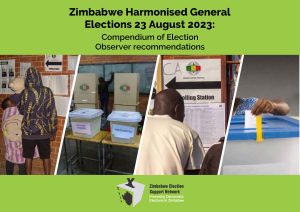The centrality of political parties to democracy in Zimbabwe is unanimously acknowledged. However,
there is often a contradiction where political parties that have glaring capacity deicits expect that
everything around them has to change to meet their demands while they continue to operate the same
way. That is, parties expect to be funded by the state, demand constitutional and electoral reforms yet
remain silent on the pragmatics of how they too need to comply with the formal rules and regulations of
the game. Political parties ought to be regulated through a mechanism that establishes the minimum
requirements in terms of how they organize themselves and conduct their business. Regulation should
embody how political parties are registered, deregistered and how they access inances, manage and
account for their inances whether provided under the law, donations or otherwise.
In Zimbabwe, political parties inancing has been the sole regulated aspect, with other aspects such as
registration and deregistration remaining unregulated, raising accountability and internal democracy
challenges. The absence of a legislation regulating political parties in Zimbabwe has been identiied as the
major problem contributing to lack of sanity in some of their operations. Consequently, the country is
faced with challenges of election related disputes and conlict, volatile party systems and lack of political
party accountability. Absence of legislation regulating political parties has also led to a wide range of
other electoral challenges, impacting the integrity and effectiveness of democratic processes particularly
in the 2023 elections. Additionally, this situation contributed to the administrative challenges faced by the Zimbabwe Electoral Commission (ZEC) and other electoral stakeholders who engage with political
parties. Following the CCC 2023 recalls and the subsequent by-elections to ill the vacant seats, the
Minister of Justice, Legal and Parliamentary Affairs highlighted this burden, suggesting that political
parties ought to be register. In his view, ‘structureless parties were engaging in endless squabbles and
recalls of parliamentarians, wasting state money that could be better utilized for other purposes’¹.
